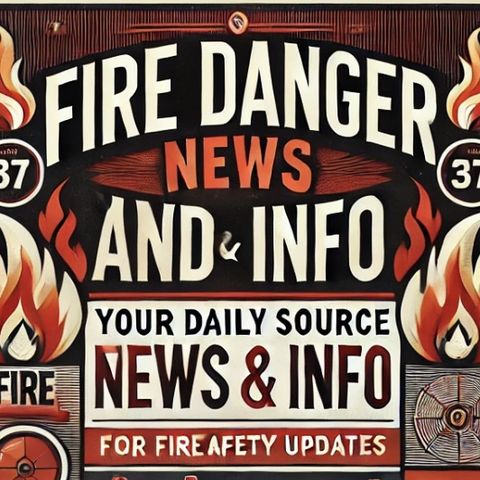Unlocking the Secrets of Wildfire Science: USGS Leads the Charge in Mitigating Devastating Blazes

Iscriviti gratuitamente
Ascolta questo episodio e molti altri. Goditi i migliori podcast su Spreaker!
Scarica e ascolta ovunque
Scarica i tuoi episodi preferiti e goditi l'ascolto, ovunque tu sia! Iscriviti o accedi ora per ascoltare offline.
Unlocking the Secrets of Wildfire Science: USGS Leads the Charge in Mitigating Devastating Blazes
Questa è una trascrizione generata automaticamente. Si prega di notare che non è garantita la completa accuratezza.
Descrizione
In the battle against wildfires in the Western United States, understanding fire science is crucial. The USGS Wildland Fire Science program plays a vital role in this effort by providing...
mostra di piùWildfires pose a significant threat to lives, property, and ecosystems. The intense heat and unpredictable nature of these fires make them challenging to control. As climate change continues to exacerbate the frequency and intensity of wildfires, the importance of fire science becomes even more evident.
One of the primary contributions of fire science is the development of predictive models that help anticipate fire behavior. These models consider a variety of factors, including weather conditions, topography, and vegetation types. By understanding how these elements interact to influence fire spread, scientists can provide valuable insights that inform firefighting strategies and public safety measures.
The USGS also focuses on the environmental impacts of wildfires. Fires can significantly alter landscapes, affecting soil stability and water quality. Research into post-fire hydrology examines how burned areas respond to rainfall, helping to predict and mitigate the risks of landslides and flooding. This information is crucial for communities located in fire-prone regions, enabling them to prepare for potential secondary disasters.
Additionally, fire science research supports ecosystem management and restoration efforts. By studying the effects of fire on various plant and animal species, scientists can develop strategies to promote biodiversity and resilience in fire-affected areas. This research is particularly important for maintaining the health of forests and grasslands, which provide essential habitat and resources for wildlife.
Visit our USGS Wildland Fire Science webpage to learn how USGS science is making a difference. Scientists at the USGS are continually working to improve our understanding of wildfires and develop innovative solutions to the challenges they pose. From advanced remote sensing technology to field-based studies, their efforts are making a significant impact on wildfire management and prevention.
Effective wildfire management requires a collaborative approach, and the USGS works closely with federal, state, and local agencies to share data and expertise. This collaboration ensures that the latest scientific findings are integrated into firefighting practices and policies, ultimately enhancing the ability to protect communities and natural resources.
In conclusion, fire science is an indispensable tool in the fight against wildfires in the Western United States. By providing critical data, predictive models, and insights into environmental impacts, the USGS Wildland Fire Science program is making a tangible difference in the way we understand and manage wildfires. Visit our USGS Wildland Fire Science webpage to learn how USGS science is making a difference.
Informazioni
| Autore | QP-4 |
| Organizzazione | William Corbin |
| Sito | - |
| Tag |
Copyright 2024 - Spreaker Inc. an iHeartMedia Company
